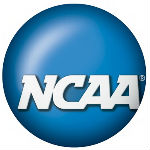 Once again the NCAA continues to embarrass itself and its constituents by attempting to block or delay court cases that they know full well are coming and can’t be avoided. Perhaps Mark Emmert is going to retire and leave these problems to his successor but don’t count on it.
Once again the NCAA continues to embarrass itself and its constituents by attempting to block or delay court cases that they know full well are coming and can’t be avoided. Perhaps Mark Emmert is going to retire and leave these problems to his successor but don’t count on it.
In their most recent blunder, lawyers for the NCAA argued before federal district court judge Claudia Wilken in an attempt to have the judge reverse her previous decision that the Ed O’Bannon case must move forward. Of all things they are fighting against college basketball and football players being paid to play for the University, when no one has actually asked for that as yet.
The recent unionization movements at the University of Northwestern never even brought up the subject of ‘pay for play’ for college athletes and yet the NCAA is trying to use that as a basis delay the O’Bannon case by claiming that athletes in non revenue producing sports and especially women athletes, would suffer all kinds of hardships if some athletes get paid and others do not.
Except that everyone already knows that the football and basketball programs support most of the other athletic departments on almost every campus across America. The NCAA argument does not seem based on any reasonable logic.
Obviously the judge agreed because she turned down Mark Emmert and company once again. The NCAA has already announced that they will be filing more motions for more delays in the near future. Perhaps Mr. Emmert should just find himself an old horse and go off looking for windmills to fight.
Almost comically, the NCAA argued that Division I football players and men’s basketball recruits should not be treated as the only consumers in a potentially unrestrained market that deprives top players of their true value. On the one hand they are terrified of the concept of college athletes getting paid, then on the other they are talking about depriving top athletes of their true value. Which is it?
Judge Wilken wrote, “by restricting the benefits that schools may offer recruits in high-revenue sports, the challenged rules necessarily have a greater impact on certain recruits than others, even if the rules technically apply across all sports.”
In rebuttal, NCAA council Donald Remy stated, “The NCAA will continue to fight against any rule that allows schools to pay men’s basketball and football players at the expense of providing college opportunities for hundreds of thousands of male and female student athletes.”
They obviously still don’t get it.




